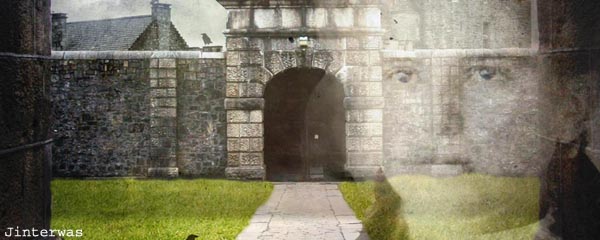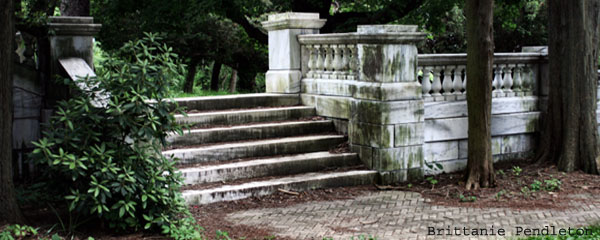
photo by Umberto Nicoletti
by Mike Smith
I know nothing of Marc Le Goupils, save for one line of commentary in the introductory essay to Volume Six of Hammerton’s The World’s Thousand Best Short Stories. It is in this volume that I found Le Goupils’ story ‘The Cross-Roads’, translated from the French by an undisclosed translator.
That one line of commentary tells me that Le Goupils increased the strength of the neo-realistic movement in the French short story, combining elements of several other national strains. His story, it says, is ‘bitter’. Indeed, it is bitter. Almost, but not quite, to the point of comedy.
The eponymous crossroads is at the precise point where four parishes meet, and it is here that a dying woman arrives one night. ‘An unknown woman. Age supposed about sixty.’ There is speculation about her origins and her type: ‘not even one of those ordinary beggars … She was a gypsy, an inveterate wanderer, living on the road by petty thefts.’
Many of the French short stories I have encountered – from the twentieth, nineteenth and eighteenth centuries, and even earlier – seem to possess a lightness of touch, or comedy, even in telling the grimmest of tales. In Verboquet Le Genereux’s ‘The Three Drunkards’, for example, three wives convince their hungover men that they are a monk, a penitent and a corpse. The story ends by praising the ‘strange devotions [that] can be produced by the fumes of good wine and the malice of women’. Marc Le Goupils’ story is one of these grim yet comic tales, into which the seam of human follies is neatly stitched. It begins with the discovery of the dead woman and then goes on to detail, in flash-back, the miserable hours of her dying.
An apparently clear statement opens the can of worms that is the rest of the story and begins the account: ‘The only important point was that her death was due to natural causes.’ It continues: ‘The death of this poor woman had, indeed, been the most natural in the world, and no fewer than fifteen witnesses were ready to testify to this.’ This repetition, a few lines on, gives us some key words, even in translation. For it is what Le Goupils means by ‘natural’ that we are about to learn.
Our dying gypsy doesn’t get much of a role in the story. She has no lines to speak, only a few moans and groans, sighs and wheezes, as she noisily expires. We do not learn her name, but we know well enough what she symbolises.
The story is not really about her. It is about the good people of the parishes upon whose mercy she has been cast in her final hours. And they are good people. They take her in, to begin with.
Principal among them is the Blacksmith of Carrefour-de-la-Forge (Crossroads of the Forge) and his wife, Mistress Nails. Unlike Carrrefour, her name has been translated  into English (according to my Dictionnaire Nouveau, there is no French word ‘nails’). The name is not randomly chosen; this story does confront our Blacksmith and his hard-as wife with a decision or two. These two, more than any other characters in the story, are at that ‘moral’ crossroads.
into English (according to my Dictionnaire Nouveau, there is no French word ‘nails’). The name is not randomly chosen; this story does confront our Blacksmith and his hard-as wife with a decision or two. These two, more than any other characters in the story, are at that ‘moral’ crossroads.
There’s a subtlety to the presentation of the statement the Blacksmith poses to the begger, when he first goes to her assitance: “Hello, mother, you don’t seem quite as well as you might be!” He says it in ‘a voice which sounded kindly’. This is a story about seeming kindly, to begin. Le Goupils tells us, ‘They were good people, and very neighbourly’, and this is a story about goodness and neighbourliness, at least, to begin.
Country people though, he reminds us, are often ‘by no means well off’ and these two do ‘not consider that they had any duty to fulfil to strangers and tramps’. Yet, when the old woman gasps and begins to totter, the Blacksmith’s wife rushes to catch her, and they agree, instinctively, that they must help her. She is taken into their house, and placed upon a chair. The Blacksmith first becomes uneasy: ‘Can’t you see that she is dying?’ and wants to ‘cure’ her, ‘so that she can go away soon’. It is not that they don’t want to help. They give her brandy, a consciously generous slug of it.
The neighbours arrive to see what is going on, and ‘each inwardly thanked his lucky stars’ that the duty of care has fallen on the Blacksmith, whom they ‘praised highly’. For a while, it looks as if they can get her well enough to go back outside. The night will be balmy enough not to kill her! The Blacksmith wants to be released of his duty, but the neighbours slope off, one by one, leaving him to struggle with his conscience alone. The wife sends him for a priest, or a doctor, saying they will keep her till tomorrow.
Outside though, one of the neighbours has heard that ‘if that woman dies in your house, Blosseville [the parish] will have to pay the funeral expenses’. Fear of the Mayor, the magistrate and the police, of the red tape and regulations and expense, from now on dominates the Blacksmith’s thinking. His wife is convinced immediately of the wisdom of his resolve:
“I can’t have her any longer,” he declared.
“One can’t do these things all alone,” she said … “Fetch Gaffer Durand’s wheelbarrow…”
(‘Dur’ is the French word for ‘hard’, ‘durant’ for enduring. And so Durand might have translated as Gaffer Harding.)
Then begin the darkly comic events that fill the latter half of the story. Laid almost reverently in the wheelbarrow, with a soft pillow to support her head, the gypsy woman is trundled from place to place in search of somewhere she can die, at someone else’s expense. Even this proves not so simple, to the good folk of the parishes, for as each location is attempted, it is thwarted, by the wishes of other ‘good’ people.
The nearer the woman comes to death, the more urgently they seek to dump her. She is lifted, gently from the barrow, and placed back in it more roughly. The pillow is retrieved; she will not need it much longer. As her gasps and cries become weaker, the search becomes more frenetic. Eventually, in the dead of night, she is tipped out unceremoniously, and the wheelbarrow clatters back as unburdened as those who wheel it.
Marc Le Goupils’ realism keeps the telling of these quasi-farcial events just the right side of serious. We never laugh at her, the dying woman, whose groans and whimpers are heard often enough to remind us she is there, and living, but whose silences are long enough for us almost to forget. Out of the realism, and the faux-comedy, is borne the realisation of the moral vacuum in which these shallowly caring people live – wishing to ease her passing, and to show their humanity, but not at the cost of their own labours, and their own pockets. The value of the living and the dead is also weighed. In so much as she lives, she demands their sympathy, but the nearer to death they perceive her to be, the further she slips below the horizon of their care.
Structurally, the story is split by ‘white space’ breaks into eight segments. The first sets the scene: the fact of the body. The second flashes back to the Blacksmith and his wife finding her, alive, and taking her in. The third deals with the neighbours’ input. The fourth, quite short, has Gaffer Durand checking the weather. The fifth recounts Durrand’s discussions with the Blacksmith, leading to that wheelbarrow. The sixth and seventh tell the blackly comic story of the quest to find a place to dump the dying woman. And the final one, briefly, closes the account: ‘the Brettevillians and the Blossevillians went to bed and slept soundly.’
It is such a grim story, but so finely handled. The reader does not burst out laughing, though laughter bubbles. The story is not unremittingly unsympathetic. We feel, almost, sorry for the villagers, as they struggle to square the petty selfishness of their actions with the seriousness of the dying woman’s plight.
And, of course, the heart of stories such as this, whenever they were written – past present, or future – call out to the petty selfishness in us all. How would we behave in similar circumstances, beneath the shadow of our own petty regulations and limitations; when reaching our moral crossroads?

